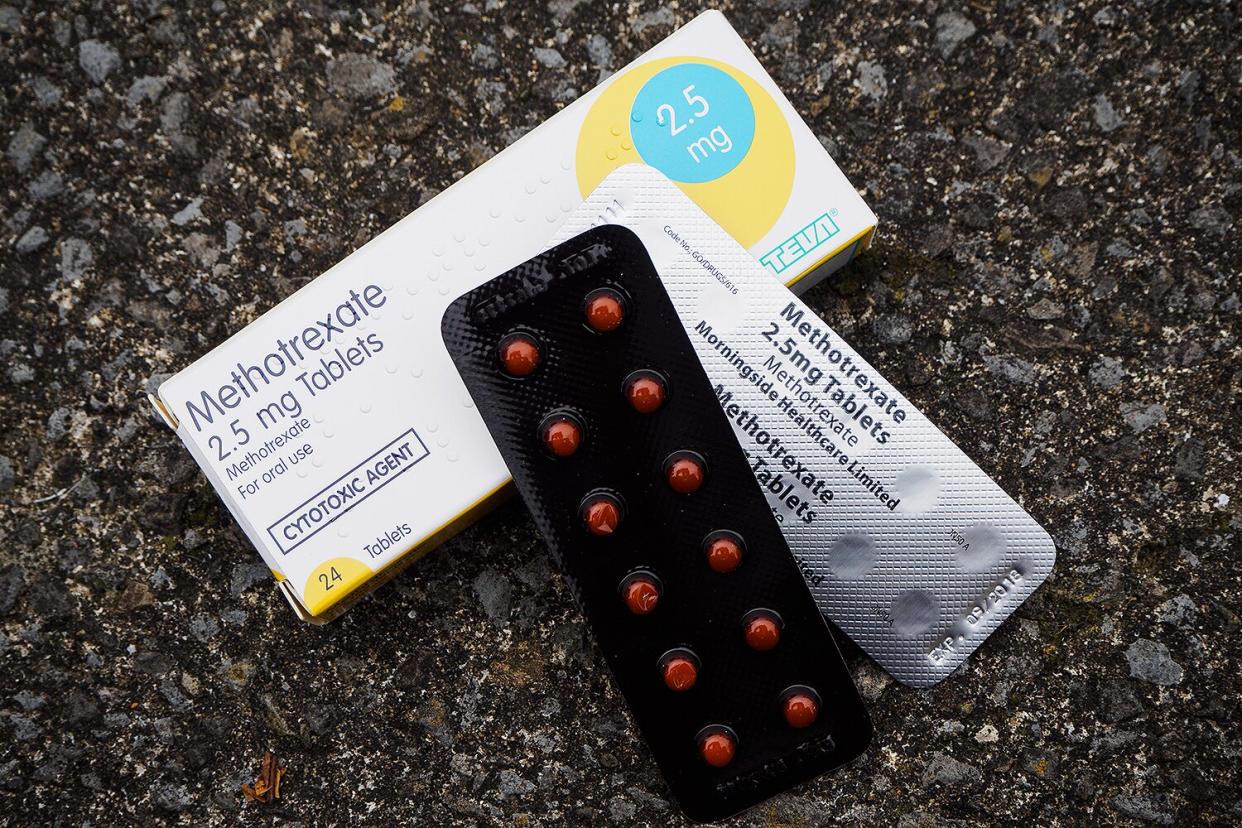Roe v. Wade Reversal Has Led to Restrictions on Medication for Patients with Autoimmune Disorders

Shutterstock
A common and inexpensive medication used to treat rheumatic conditions is suddenly unavailable to many patients in need.
Methotrexate is an anti-inflammatory prescription drug that can ease symptoms for patients who have rheumatoid arthritis, lupus, psoriasis and childhood arthritis. It is also used as a cancer drug.
Now, state-level restrictions on abortions are affecting some people's access to the medication because is also sometimes used to end ectopic pregnancies, which occur when the fertilized egg implants in the fallopian tube, a condition that is fatal to the fetus and life-threatening to the mother. However, those patients represent about 2% of the 5 million Americans who take methotrexate, according to the L.A. Times.
After the Supreme Court overturned Roe v. Wade, nearly 15 states made abortion illegal — and that includes pills that induce a medical abortion.
Methotrexate seems to be caught in the middle of the fray, confusing health care providers and upsetting patients, some of whom took to social media to explain what happened to them.
"I've never had an abortion but my access to healthcare has changed because Roe was overturned," Tweeted Becky Schwarz of Virginia. "I Have #Lupus which is an inflammatory autoimmune disease that causes my immune system to attack my organs, joints, skin and muscles."
i’ve never had an abortion but my access to healthcare has changed because Roe was overturned.
I have #Lupus which is an inflammatory autoimmune disease that causes my immune system to attack my organs, joints, skin, and muscles.
i take #Methotrexate as one of my treatments— Becky (and - Dwight the Mini Dachshund) (@BeccaLizz) July 1, 2022
She describes her surprise at being told that the medicine she has relied on for years is no longer available to her: "I received an email from my rheumatologist today that they are stopping all refills of methotrexate because it is considered an abortifacient," she wrote.
RELATED VIDEO: President Joe Biden Signs Executive Order to Protect Abortion Access
Many doctors and pharmacists are choosing not to prescribe the drug anymore, in fear of breaking the strict anti-abortion laws, post Roe.
RELATED: Why I Chose to Have a Medical Abortion — Twice — While Struggling with Infertility for Years
Other doctors are worried about their patients. "It's one of the most common medications that I prescribe," Dr. Grant Schulert, a pediatric rheumatology specialist at Cincinnati Children's Hospital, told the LA Times. "It's really a mainstay of our practice." Ohio has passed restrictive abortion laws that may limit the access to methotrexate.
It remains to be seen how the Supreme Court's decision will affect the broader medical landscape.
"The biggest thing that right now I'm hearing is just a lot of fear of what is going to happen next," said Schulert. "Even in patients who are doing well who stop a medication, about half will flare their disease in six to 12 months."

